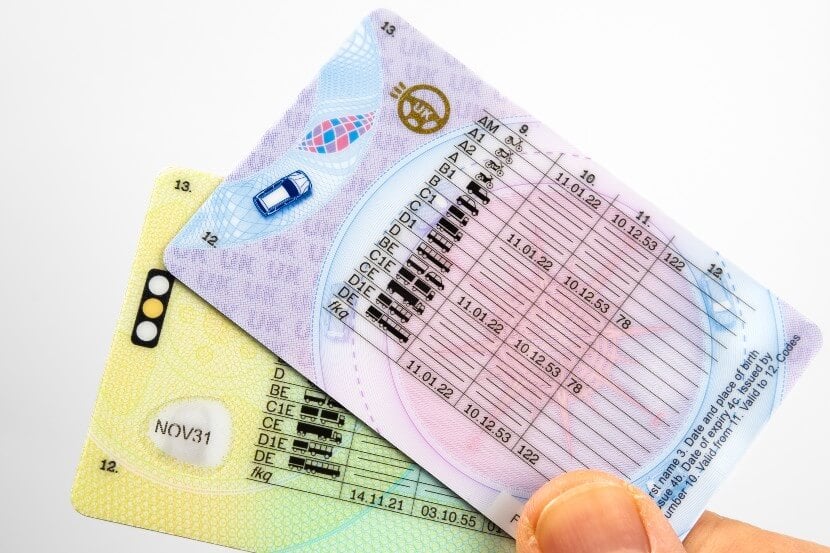back of driving licence explained

Decoding Your Driving Licence
Ever stared at the back of your driving licence, feeling like you’re reading a foreign language? You’re not alone! Many drivers only focus on the front, missing key details hidden on the back.
A driving licence is more than just permission to drive. It’s an official document. It verifies that you have the skills and knowledge to operate a vehicle safely. It also includes important information about what you’re allowed to drive, any restrictions you have, and when your licence expires. This guide will help you understand everything on the back of your driving licence.
Understanding Licence Codes and Restrictions
Driving licence codes are there for a good reason. It’s important to know what you can and can’t do behind the wheel.
What are Driving Licence Codes?
Driving licence codes are like secret messages. They tell you about restrictions, endorsements, and other important details related to your driving privileges. These codes ensure you are driving safely and within the bounds of the law. They can impact what you drive, when you drive, and even how you drive.
Deciphering Common Codes and Their Meanings
Many drivers find themselves confused by licence codes. Here are some common codes and what they mean:
| Code | Meaning |
|---|---|
| 01 | Requires glasses or contact lenses |
| 02 | Requires a hearing aid |
| 20 | Adapted steering |
| 25 | Adapted accelerator |
| 35 | Adapted control layouts |
| 40 | Adapted steering |
| 42 | Adapted rear-view mirror |
| 44 | Adapted brakes |
Note: Codes may vary based on your state.
How to Find Official Code Explanations
Want to know exactly what the codes on your licence mean? Your local Department of Motor Vehicles (DMV) or transportation authority is the best place to look. Here’s how to find those sources:
- DMV Website: Search for your state’s DMV website. Look for a section on “licence restrictions” or “driving licence codes”.
- Driving Manual: Check your state’s driving manual. It usually includes a detailed explanation of all licence codes.
- Contact the DMV: Call or visit your local DMV office. Ask them to clarify any codes you don’t understand.
Vehicle Categories and Your Licence
Not all licences are created equal. Your licence states what kind of vehicles you’re allowed to drive.
Defining Vehicle Categories
Vehicle categories group vehicles by type and size. Common categories include:
- Cars: Standard passenger vehicles.
- Motorcycles: Two-wheeled vehicles.
- Trucks: Larger vehicles for hauling goods.
- Buses: Vehicles designed to carry many passengers.
Each category has its own licence requirements. This usually depends on weight, size, and how the vehicle is used.
Understanding Category Entitlements
The back of your licence lists the vehicle categories you’re allowed to drive. It may show letters or codes. For example, a “B” often means you can drive a car. An “A” often means you can drive a motorcycle. Check your local DMV for specifics.
What Happens if You Drive Outside Your Licence Category?
Driving a vehicle you’re not licensed for can lead to serious consequences. These can include:
- Fines: You could receive a hefty fine.
- Vehicle Impoundment: The vehicle may be taken away.
- Legal Charges: In some cases, you could face criminal charges.
- Insurance Issues: Your insurance may not cover accidents.
Always make sure you have the right licence for the vehicle you are driving.
Expiry Dates and Licence Validity
Your driving licence doesn’t last forever. Keep an eye on the expiry date.
Locating the Expiry Date
The expiry date is usually on the front or back of your licence. It is usually labeled clearly. This date tells you when your licence is no longer valid. Driving with an expired licence can lead to fines or other penalties.
What Happens When Your Licence Expires?
Once your licence expires, you can no longer legally drive. To renew it, you usually need to:
- Visit your local DMV office.
- Fill out an application form.
- Pass a vision test.
- Pay a renewal fee.
- You may need to pass a written or driving test in some cases.
Don’t wait until the last minute to renew. This can help avoid any issues.
Medical Requirements and Licence Validity
Your health can impact your ability to drive safely. Some medical conditions must be reported to the DMV. These conditions can affect your licence validity. Examples include:
- Vision problems
- Seizures
- Diabetes
- Heart conditions
Always be honest about your health. This ensures you and others stay safe on the road.
Address Information and Updates
Keeping your address current is vital. It helps you receive important notices and stay in compliance.
Why is Accurate Address Information Important?
Having the correct address on your licence matters. It ensures you get important notices. These include renewal reminders, traffic violation notifications, and other official correspondence. Plus, it’s the law.
How to Update Your Address
Updating your address is often easy. Here’s how:
- Online: Many states let you update your address online through the DMV website.
- By Mail: You can often mail in a form to update your address.
- In Person: Visit your local DMV office to update it in person.
Choose the method that works best for you.
Consequences of Not Updating Your Address
Failing to update your address can lead to penalties. You might miss important notices. You could also face fines if you’re stopped by law enforcement. Keep your address current to avoid these issues.
Demystifying Endorsements and Penalties
Endorsements and penalties appear on your driving licence. It’s important to understand them.
What are Endorsements?
Endorsements are official notes on your licence. They show driving-related offenses or restrictions. These can include traffic violations, DUI convictions, or other issues. Endorsements affect your driving record.
Common Endorsement Codes and Their Meanings
Here are a few common endorsement codes:
- DUI: Driving Under the Influence.
- SP: Speeding.
- CU: Careless Driving.
Each code has its own implications. Some can lead to licence suspension or higher insurance rates.
How Long Do Endorsements Stay on Your Licence?
Endorsements don’t stay on your licence forever. The length of time varies by state and the severity of the offense. Minor traffic violations might disappear after a few years. More serious offenses, like DUI, can stay on your record much longer. Check with your local DMV for specific timeframes.
Conclusion
Understanding the back of your driving licence is vital. It ensures you’re aware of your driving privileges, restrictions, and responsibilities. From deciphering codes to keeping your address current, it all contributes to safer roads.
Take a moment to check your licence today. Make sure you understand everything on it. Staying informed keeps you a safe and legal driver.

Leave a Reply